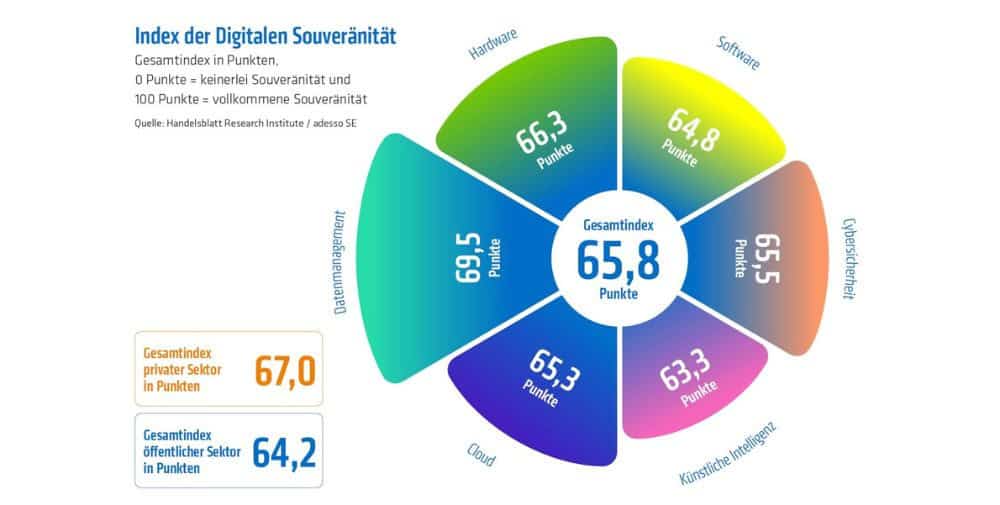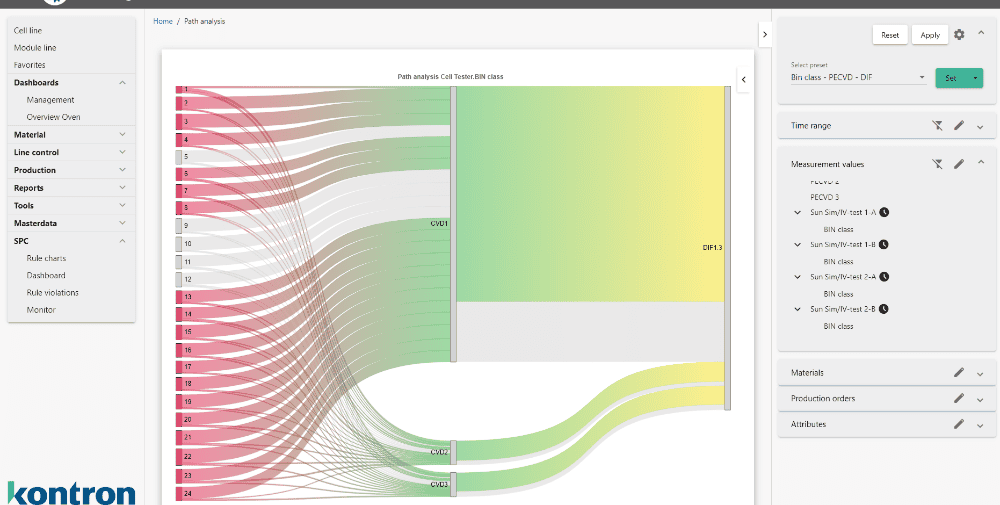
According to the study, 92% of respondents consider the topic of digital sovereignty to be important. However, this is apparently only lip service: only 21% of the companies surveyed have developed a dedicated strategy for their digital sovereignty. Only 25 percent of the companies surveyed have assigned responsibility for the topic to the management board. And only 13 percent have integrated digital sovereignty into their corporate strategy. 46% of companies leave the topic to the IT department, with the vast majority reducing it to the aspects of cloud (72%) and security (91%). Aspects also affected by digital sovereignty, such as law and regulation, further training and skills development, as well as purchasing or supply chain management, are often ignored.
Maturity level at just under 66 percent – small companies in the lead
These are the findings of the first Digital Sovereignty Index (IDS) conducted by adesso, the largest IT service provider in Germany, and the Handelsblatt Research Institute. Based on a Germany-wide, cross-industry survey of almost 500 companies with more than 250 employees and public sector organizations, the index determines the current level of maturity in terms of digital sovereignty. This is made up of an assessment of the six aspects of hardware, software, cyber security, data management, cloud and artificial intelligence.
According to the index, the average maturity level of the German economy across all organizational forms and sizes is 65.8 percent. At 67 percent, companies score slightly better overall than public administration at 64 percent. And smaller companies (less than 2,500 employees) with 68.9 percent are again better than large companies (more than 2,500 employees) with 64.2 percent. Complete sovereignty is achieved at a value of 100 percent.
High dependence on non-European providers
The index shows that the companies and organizations surveyed are heavily dependent on non-European providers, particularly for key technologies such as cloud, software and artificial intelligence. More than 60 percent of companies admit that they are dependent on solutions from abroad. And in the area of artificial intelligence, 63 percent rate their level of digital sovereignty as only “sufficient”.
Implementation is faltering – but willingness to invest is there
So far, a lack of skills, a shortage of skilled workers and high costs are still holding back the expansion of digital sovereignty in many places. But the seriousness of the situation seems to have been recognized – because the willingness to invest in digital sovereignty in the future is high: 80 percent of companies would pay a premium for sovereign solutions, on average 17 percent. For larger companies, this figure is just under 30 percent.
– – – – – –
Further links
👉 www.adesso.de
Graphic: Digital Sovereignty Index by adesso and Handelsblatt Research Institute




